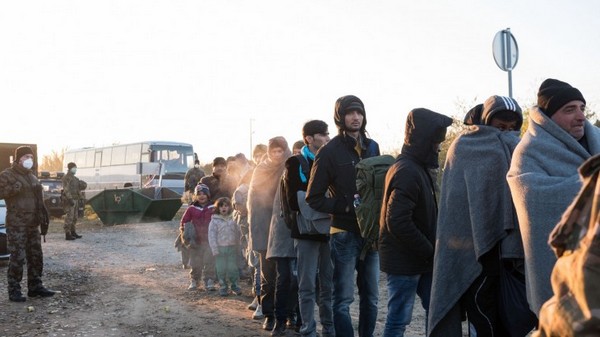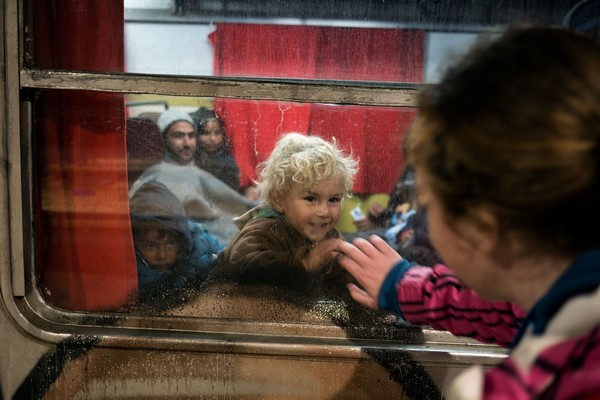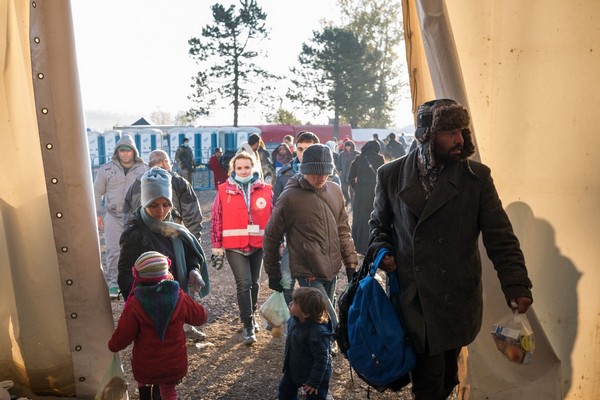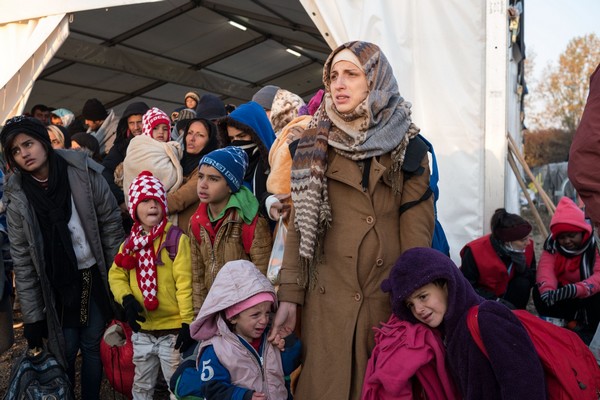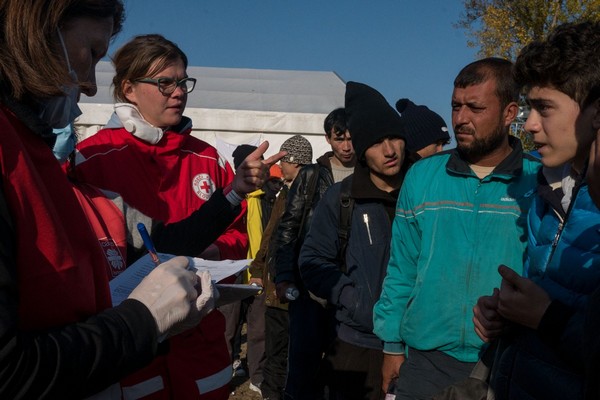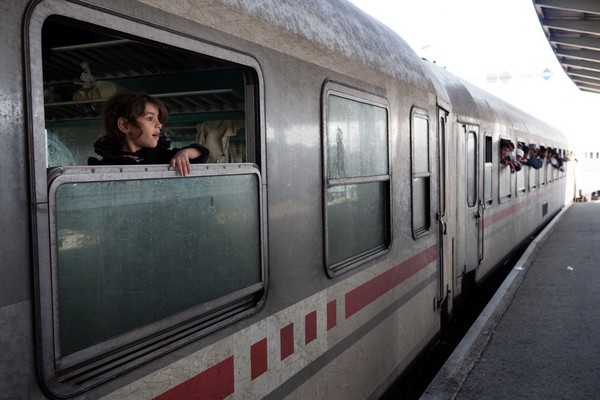Thousands of migrants have been arriving every day in Slovenia, the smallest of the countries on the “Balkan transit route” from Greece. As they line up for registration and assistance, many are unsure what to expect.
Article –
The anxiety, uncertainty and exhaustion take their toll on many of those who have made the journey from Syria, or Iraq or Afghanistan.
Here in Slovenia, as in many places along the migration routes, the ICRC and the local Red Cross help migrants to make contact with their families, via the internet or mobile phone. The road ahead maybe unclear but at least they can reassure their loved ones they are safe and hear news from home.
Arriving and being transferred between trains and buses is a critical point on the journey, where migrants are most at risk of being separated from their families.
Red Cross staff and volunteers have a key role mediating with local police to make sure family groups can stay together.
Slovenian Red Cross volunteers and ICRC staff work as a team to man both Dobova Station and the nearby reception camp.
“ As soon as a group arrives, you have to approach them immediately. You have to be quick to spot any problems and then imaginative and determined in order to resolve them as soon as possible. You cannot sit in a container and wait, you have to be active and on the alert for all the people who may need your help.”
Nieves, ICRC Delegate
As Slovenian police struggle to process the constant flow of arrivals, providing much needed humanitarian assistance, such as clothing, becomes almost a race against time. Red Cross volunteers and staff have to negotiate with the authorities to be able to escort the sick to doctors.
“It’s is not just women and children who may be particularly vulnerable, but also young males, mostly minors, coming from countries such as Afghanistan or Pakistan and travelling in a group of men. They are more prone to separation from their group, which is practically their only protective shield on the road, because the group does not enjoy special considerations granted to family units.”
Nieves, ICRC delegate
Five or six trains full of migrants were arriving daily in Dobova station on their way to Austria, although the numbers travelling along this route have now dropped to two or three. But Slovenian authorities say there are still thousands arriving each day, with more than 300,000 arrivals since mid-October. That’s when Slovenia was thrust into a key position on the migration route towards western Europe after Hungary closed its border with Croatia.
In #PushedToTheLimits we see the hardships that drive people to flee their homes and continue to bedevil them along their migration routes.


